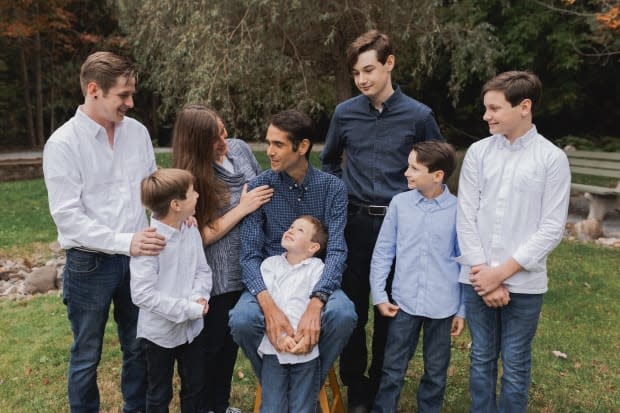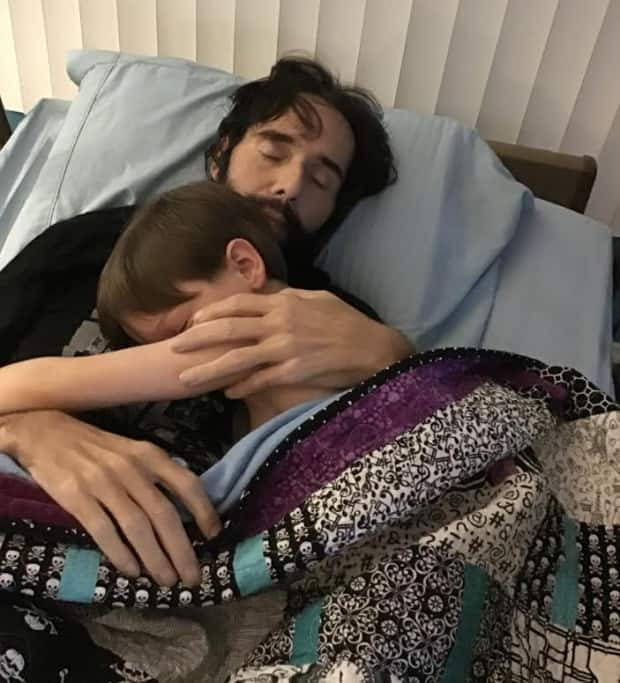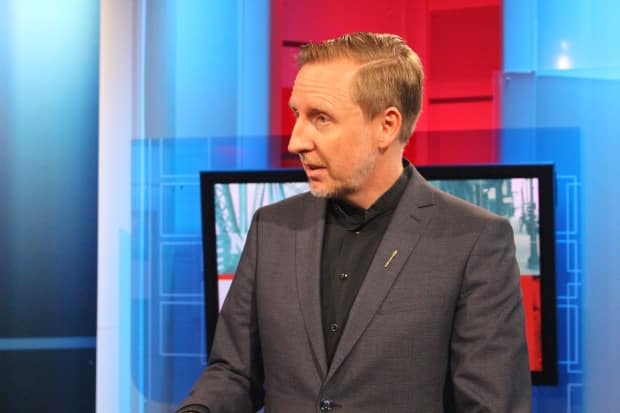Rothesay mom begs for son with autism to be held back a year

A Rothesay woman is fighting to hold her son back a grade level after she was told he would be promoted to Grade 2, despite her arguing he isn't ready.
Tanya White says she's desperate for her six-year-old son Nikki, who has high-functioning autism spectrum disorder and is developmentally delayed, to repeat Grade 1.
She believes Nikki's designation as a Grade 1 student was improper to begin with, and that in essence the school wants to promote him from kindergarten to Grade 2.
"There's lots of evidence of kids graduating without functional literacy levels, and that is my fear," said White, who has six children, four of whom have autism spectrum disorder.
In January, 2020 she was told by Nikki's school, which White did not feel comfortable naming, that her son would repeat kindergarten.
There was no curriculum. There couldn't have been, we were all dealing with, 'Daddy's going to die.' - Tanya White
Then the pandemic hit and her husband Patrick was facing terminal cancer and several medical emergencies.
A few months later she was told Nikki would be pushed into Grade 1 come September of 2020.
"I wasn't able to battle a battle last year, when I was told in late spring he would be promoted to Grade 1," she said.
Nikki missed eight and a half months of school. White said, because of his dad's health issues, the family has been living on a roller coaster since last May, "surviving moment to moment, day by day."
Nikki returned to school in January, 2021, and his father died a month later.
"There was no curriculum," she said. "There couldn't have been, we were all dealing with 'Daddy's going to die.'
Promoted to Grade 2
When he returned to school this year, Nikki returned to a kindergarten class, even though on paper he was in Grade 1.
"We started the process to retain him again and let him actually do the Grade 1 curriculum," she said.
But she was told this spring Nikki would be promoted to Grade 2 in the fall, even though he has never been taught Grade 1 inside a classroom by a licensed Grade 1 teacher.
"Six weeks after my husband died, I had to fight," she said.
White said she was told a plan would come together for the next academic year to get the support he needs.
"There's nothing noting exactly what that will be," she said.
'I know what can be possible for Nikki'
She asked to appeal the decision and received documentation about why it was made, but she said the information was "vague" and based on a broader inclusive policy.
White also called the school.
"They wouldn't speak to any of it," she said. "They wouldn't tell me who made the decision, why the decision was made and what was behind that decision in terms of any policy."
While she believes in the inclusive policy, White said she's disappointed it doesn't allow parents the right to make any choices on their children's behalf.

White said she and her husband have always supported their sons' development and believe parents should have a say in their child's best interest in school.
She said her son Luke, 16, who was retained in grade 5, now has a 92 per cent average.
"He's now absolutely academically excelling, but he was on the same path Nikki's on right now," said White, who has a Masters in social work.
"I know what can be possible for Nikki."
White said it made sense to push her son through the system in the pandemic to prevent the system from being clogged with students entering the same grade level.
But she said it does not hold in the 2020-21 school year.
"We're not jamming up a system."
Province explores inclusion policy
Education Minister Dominic Cardy said he doesn't have the authority to hold back a student in a particular grade and that it's up to each school district to make such decisions.
CBC News has asked the Anglophone South School District for an interview and is waiting for a response.
Cardy did say discussions are happening right now to create a broader inclusion policy.
"It's actually being ramped up as we speak," he said. "The goal is to look at areas like this."
Early last year, Cardy called for a review of New Brunswick's inclusive education policy while on a province-wide tour seeking feedback on his green paper on education reform.

New Brunswick's inclusive education policy was last updated in September 2013.
Cardy, who said the policy discourages students from being held back a year, has heard of students getting passed to a higher grade level before they're ready, causing behavioural issues, stress and depression down the road.
"That is not inclusion," he said.
Cardy said New Brunswick's public school system needs to meet the needs of each student.
"I can't really say we're doing that if we're not giving them the tools to read and write."
Although Cardy hasn't spoken directly with White, he did welcome her to take part in an ongoing conversation about the inclusion policy.
"There's pretty clearly some failings in the system, where some kids are being left to fall through the cracks year after year after year, which is the definition of the opposite of inclusion," Cardy said. "This is exclusion."
